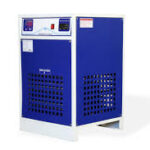Air Cooled Chillers
Air-cooled chillers are refrigeration units that utilize airflow to remove heat from the refrigerant or coolant. In contrast, water-cooled chillers require a water supply and cooling towers for heat dissipation.
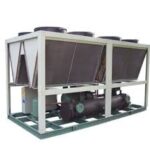
Water Cooled Chillers
Water-cooled chillers rely on a continuous water supply to transfer heat from the refrigerant, ensuring optimal cooling. They are commonly used in large industrial plants, commercial buildings, and data centers.
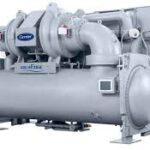
Screw Chillers
Screw chillers use screw compressors to provide effective cooling for industrial and commercial applications. They are known for their ability to handle large loads efficiently.
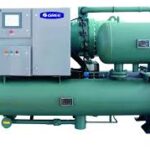
Variable Speed Chillers
Variable speed chillers use compressors equipped with variable frequency drives (VFDs), enabling precise speed adjustments to match changing cooling load requirements.
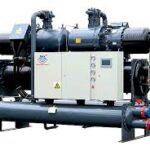
Oil Chiller
Oil Chiller are refrigeration systems designed to control and maintain the temperature of lubricating oil used in industrial machinery and processes. They ensure that the oil remains within a specified temperature range critical.
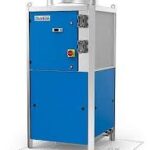
Hydraulic Oil Chiller
Hydraulic oil chillers are used to cool and regulate hydraulic oil temperature. They ensure that hydraulic systems function efficiently under heavy loads. Proper cooling prevents wear and tear.
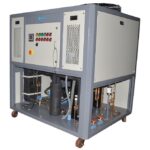
Online Chiller
Online chillers provide industrial cooling with remote monitoring capabilities. They help maintain precise temperature control from any location. This ensures optimized performance and reduced downtime.
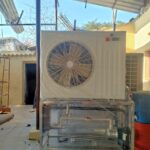
Glycol Chiller
Glycol chillers maintain precise low-temperature cooling for sensitive applications. They circulate a glycol-water coolant to prevent temperature fluctuations. This is crucial for breweries, wineries
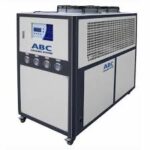
Spindle Chiller
Spindle chillers provide cooling for high-speed spindles in CNC machines. They prevent heat buildup, ensuring stable performance. This enhances machining accuracy and reduces wear.
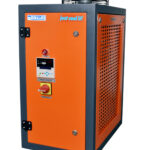
Refrigerated Air Dryer
Refrigerated air dryers cool compressed air to condense and remove moisture. This prevents corrosion and damage in pneumatic systems. They ensure reliable operation in industrial air
